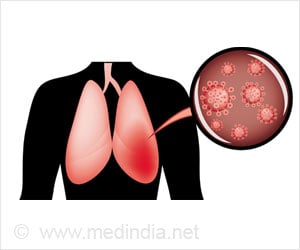Researchers at the Chinese University of Hong Kong have developed a test that could help millions in the face of an emerging liver cancer crisis in Asia.
Researchers report on a new blood screening technique that could make it possible to detect early-stage liver cancer and predict how well a patient will do following treatment. They present their data today at the American Association for Cancer Research’s Second International Conference on Molecular Diagnostics in Cancer Therapeutic Development, in Atlanta, Georgia.
According to their report, the Chinese team has detected an altered version of RASSF1A, a tumor suppressing gene, in the blood of HCC patients and in 58 percent of HBV-infected test subjects. Healthy subjects showed no signs of the altered gene. They also found that patients treated for HCC with high blood levels of the gene were more likely to have a relapse of the disease.“A large portion of the population throughout Hong Kong and China are carriers of hepatitis B, so many people are at risk for hepatocellular carcinoma,” said K.C. Allen Chan, MBBS a professor at the Chinese University of Hong Kong. “And we hope that this will form the basis of an effective clinical test for early detection of hepatocellular carcinoma.”
Hepatocellular carcinoma is one of the deadliest forms of cancer in China and throughout Asia, according to the researchers. In the West, liver cancer is usually a secondary cancer, caused by the spread of tumor cells from elsewhere in the body. In China, however, liver cancer mainly manifests as HCC, a primary cancer, which has been linked to hepatitis B and C infection and cirrhosis. Noticeable symptoms do not usually appear until the cancer has progressed, so it is rarely caught early, when intervention would be most effective, and survival rates are typically low, said Chan.
Currently, ultrasound and CT scans are the gold standard for detecting HCC. However, they are too expensive to be an effective mass screening tool, the researchers said. About 70 percent of patients exhibit a detectable increase in bloodstream amounts of alphafetoprotein, but a screen for this protein would miss many potential patients. “We need a new biomarker for hepatocellular carcinoma, something that can be used to screen large populations of at-risk people for follow-up studies,” Chan said.
RASSF1A is a good candidate, according to Chan. Researchers have known that the DNA of HCC tumor cells lack a functioning copy of RASSF1A. In these cells, RASSF1A is “hypermethylated,” meaning the RASSF1A gene has been physically altered by cancer-related processes that added clusters of carbon and hydrogen atoms, called methyl groups, to portions of the DNA within the gene. Hypermethylation is epigenetic – the gene is altered by environmental circumstances and is not inherited. Since the cell’s protein making system can’t access the gene, hypermethylation effectively knocks out the tumor-suppressing RASSF1A gene, which is then unable to stop cells from becoming cancerous.
While hypermethylated RASSF1A would make a useful biomarker for HCC, methylation-specific PCR – the polymerase chain reaction used to specifically amplify and detect methylated DNA – destroys about 85 to 93 percent of the DNA in a blood sample. Together with the fact that tumoral DNA is only present at very low concentrations in blood during early stages of HCC, this method has not been sensitive enough to detected altered RASSF1A in blood for the purpose of early cancer detection, Chan said.
Advertisement
To test the relationship between altered RASSF1A and HCC – as well as test the new detection technique -- Chan and his colleagues conducted two studies involving HCC patients. In the first, they matched 63 pairs of patients, one with HCC and the other a chronic HBV carrier by age and sex, along with 30 healthy volunteers. They detected hypermethylated RASSF1A in 93 percent of the HCC patients, 58 percent of the HBV carriers and none of the healthy patients. The median RASSF1A levels for the HCC patients were 770 copies per milliliter and 118 copies per milliliter for HBV carriers.
In the second study, the researchers looked at 22 pairs of sex- and age-matched patients who had been enrolled in a HCC surveillance program involving 1018 HBV carriers. For the 22 HBV carriers who subsequently developed HCC, there was a significant increase in circulating RASSF1A levels from the time of enrollment to the time of cancer diagnosis. On the contrary, there was no significant change in RASSF1A levels over the same period for the 22 matched subjects enrolled in the same program who didn’t develop HCC.
“As we refine the process of detecting hypermethylated RASSF1A, we hope to have a functioning test for hepatocellular carcinoma,” Chan said. “A significant number of people will develop this cancer and it is only through early screening and detection that we can hope to help them.”
The mission of the American Association for Cancer Research is to prevent and cure cancer. Founded in 1907, AACR is the world's oldest and largest professional organization dedicated to advancing cancer research. The membership includes nearly 26,000 basic, translational, and clinical researchers; health care professionals; and cancer survivors and advocates in the United States and more than 70 other countries.
AACR marshals the full spectrum of expertise from the cancer community to accelerate progress in the prevention, diagnosis and treatment of cancer through high-quality scientific and educational programs. It funds innovative, meritorious research grants. The AACR Annual Meeting attracts more than 17,000 participants who share the latest discoveries and developments in the field. Special Conferences throughout the year present novel data across a wide variety of topics in cancer research, treatment, and patient care.
AACR publishes five major peer-reviewed journals: Cancer Research; Clinical Cancer Research; Molecular Cancer Therapeutics; Molecular Cancer Research; and Cancer Epidemiology, Biomarkers & Prevention. Its most recent publication, CR, is a magazine for cancer survivors, patient advocates, their families, physicians, and scientists. It provides a forum for sharing essential, evidence-based information and perspectives on progress in cancer research, survivorship, and advocacy.
Source-Eurekalert
SPH/C











